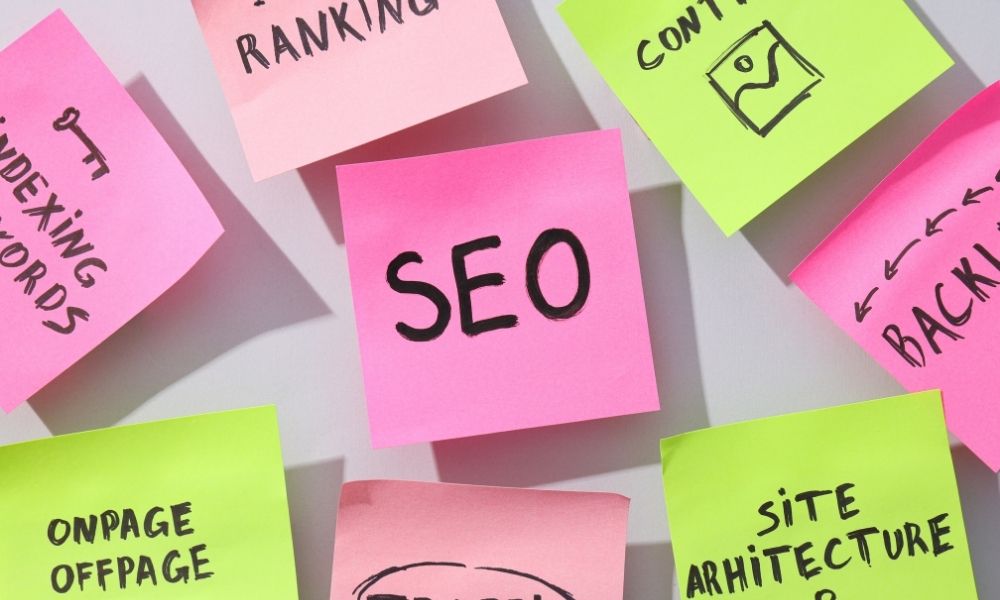In today’s fast-paced digital world, website speed is crucial. Whether you are running an e-commerce site, a blog, or a corporate website, users expect fast-loading pages. According to studies, a delay of just one second in page load time can result in a significant decrease in conversions and user satisfaction. That’s why investing in website speed optimization services is essential to the success of your online presence.
Website speed optimization refers to the process of improving the performance of a website, ensuring it loads quickly and efficiently. It not only impacts user experience but also plays a significant role in SEO (Search Engine Optimization) rankings. In this blog post, we’ll explore the importance of website speed, the factors that influence it, and how website speed optimization services can help you achieve better performance, higher engagement, and improved conversion rates.
Why Website Speed Matters
The speed of your website is not just a matter of convenience for your visitors; it affects several key aspects of your business:
1. User Experience
Users expect websites to load within seconds. If a website is slow, visitors are more likely to abandon it. Slow loading times create frustration, leading to higher bounce rates. Studies suggest that 40% of visitors will leave a website if it takes more than 3 seconds to load. By improving the speed of your site, you enhance the overall user experience, leading to higher engagement and retention.
2. Conversion Rates
A faster website leads to higher conversion rates. Whether your goal is to sell products, gather leads, or promote content, faster loading times mean that users are more likely to follow through with the action you want them to take. A slow website can directly impact your sales or lead generation efforts, as potential customers may lose interest and move on to a competitor’s site.
3. SEO Rankings
Google and other search engines have placed an increasing emphasis on website speed in their ranking algorithms. A website that loads quickly is more likely to rank higher on search engine results pages (SERPs) than a slower website. If you want to stay competitive and drive organic traffic, improving your website’s speed should be a priority.
4. Mobile Experience
With mobile traffic on the rise, website speed optimization has become even more critical. Mobile users are often on the go and may be using slower internet connections. A slow-loading website on mobile devices can be particularly frustrating. Optimizing for speed ensures that users have a smooth experience regardless of the device or connection type.
Factors That Affect Website Speed
There are several factors that can impact the speed of your website. Understanding these factors is the first step in implementing website speed optimization services effectively.
1. Web Hosting
The quality of your web hosting service plays a significant role in your website’s speed. If your server is slow or unreliable, it will negatively impact the loading times of your website. Shared hosting, for instance, can lead to slower speeds as multiple websites share the same server resources. Investing in a dedicated server, VPS (Virtual Private Server), or a high-quality hosting provider can help improve performance.
2. Unoptimized Images
Large, unoptimized images can significantly slow down a website. If images aren’t properly compressed or scaled, they can take longer to load, especially on slower internet connections. Optimizing your images before uploading them can drastically improve your site’s speed.
3. Excessive HTTP Requests
Every element on a webpage—such as images, scripts, stylesheets, and fonts—requires an HTTP request to load. If your website has too many elements, it can lead to an excessive number of HTTP requests, which can slow down the page load time. Reducing the number of elements on your page and combining files where possible can help minimize these requests.
4. JavaScript and CSS Files
JavaScript and CSS files are essential for functionality and design, but they can also slow down page loading if not optimized. Minifying these files—removing unnecessary spaces, comments, and characters—can reduce their size, leading to faster load times. Additionally, deferring non-essential scripts to load after the main content has loaded can also help improve speed.
5. Browser Caching
Browser caching allows static elements of your website to be stored locally on a user’s device. This way, when they return to your site, the browser doesn’t need to reload those elements. Without proper caching, your website will load slower for repeat visitors. Configuring caching settings can help speed up your site by reducing the load on the server.
6. Content Delivery Network (CDN)
A CDN distributes your website’s content across multiple servers worldwide, ensuring that users from different locations can access your website quickly. By serving content from a server that’s geographically closer to the user, CDNs can significantly reduce load times, especially for international visitors.
7. External Embedded Content
Embedding content such as videos, social media feeds, or third-party widgets can slow down your website. While these elements may add value to your site, they can also add additional HTTP requests and delay page load times. If you use embedded content, ensure it’s optimized and consider lazy loading, which delays loading until the user scrolls to the section containing the content.
How Website Speed Optimization Services Can Help
Hiring professional website speed optimization services can provide you with expert assistance in improving your website’s performance. Here are some ways these services can help:
1. Thorough Site Audit
A professional speed optimization service will begin by performing a comprehensive audit of your website to identify any issues affecting its performance. This includes assessing page load times, analyzing server response times, and examining all elements contributing to slow speeds.
2. Image and File Optimization
Experts will optimize images and files, ensuring that they are compressed and resized for fast loading without compromising quality. They will also minimize unnecessary elements like heavy scripts and stylesheets, ensuring the page loads faster.
3. Code Optimization
Your website’s code will be reviewed and optimized for better performance. This includes minifying JavaScript, CSS, and HTML files, removing unnecessary code, and ensuring that files are properly structured to load efficiently.
4. Server and Hosting Recommendations
If your website’s performance is affected by your hosting provider, professional services can offer recommendations on better hosting solutions or server configurations. They may suggest switching to a more powerful hosting service, upgrading to a content delivery network (CDN), or implementing server-side caching solutions.
5. Mobile Optimization
With more users browsing on mobile devices, it’s essential to optimize for mobile speed. Website speed optimization services will ensure your website is fully responsive and that mobile users have a smooth experience, regardless of the device or connection.
6. Ongoing Monitoring and Maintenance
Website speed optimization isn’t a one-time fix. As your site evolves, new elements may be added that affect performance. Professional services can provide ongoing monitoring and maintenance to ensure that your website remains fast and optimized as it grows.
Benefits of Website Speed Optimization
By investing in website speed optimization services, you stand to gain several benefits:
- Improved User Experience: Faster websites result in happier visitors, leading to higher satisfaction, engagement, and return visits.
- Increased Conversion Rates: A quicker site means users are more likely to convert, whether by making a purchase, signing up for a newsletter, or engaging with your content.
- Better SEO Rankings: A fast-loading site is favored by search engines, leading to better visibility and higher organic traffic.
- Enhanced Brand Reputation: A website that loads quickly reflects professionalism and reliability, helping to build trust with users.
- Competitive Advantage: In a competitive online environment, website speed can give you an edge over slower competitors, attracting more visitors and potential customers.
Conclusion
In conclusion, website speed is a crucial factor that affects user experience, SEO rankings, and conversion rates. By investing in website speed optimization services, you can ensure that your site is fast, responsive, and optimized for all users. Whether you’re running a small blog or a large e-commerce site, optimizing your website’s performance can lead to improved engagement, higher conversion rates, and a better overall online presence.
If you’re ready to improve your website’s speed and performance, consider partnering with a professional service that specializes in website speed optimization services. They can help you identify and fix issues, ensuring that your site performs at its best, providing a better experience for your visitors and ultimately driving your business forward.


